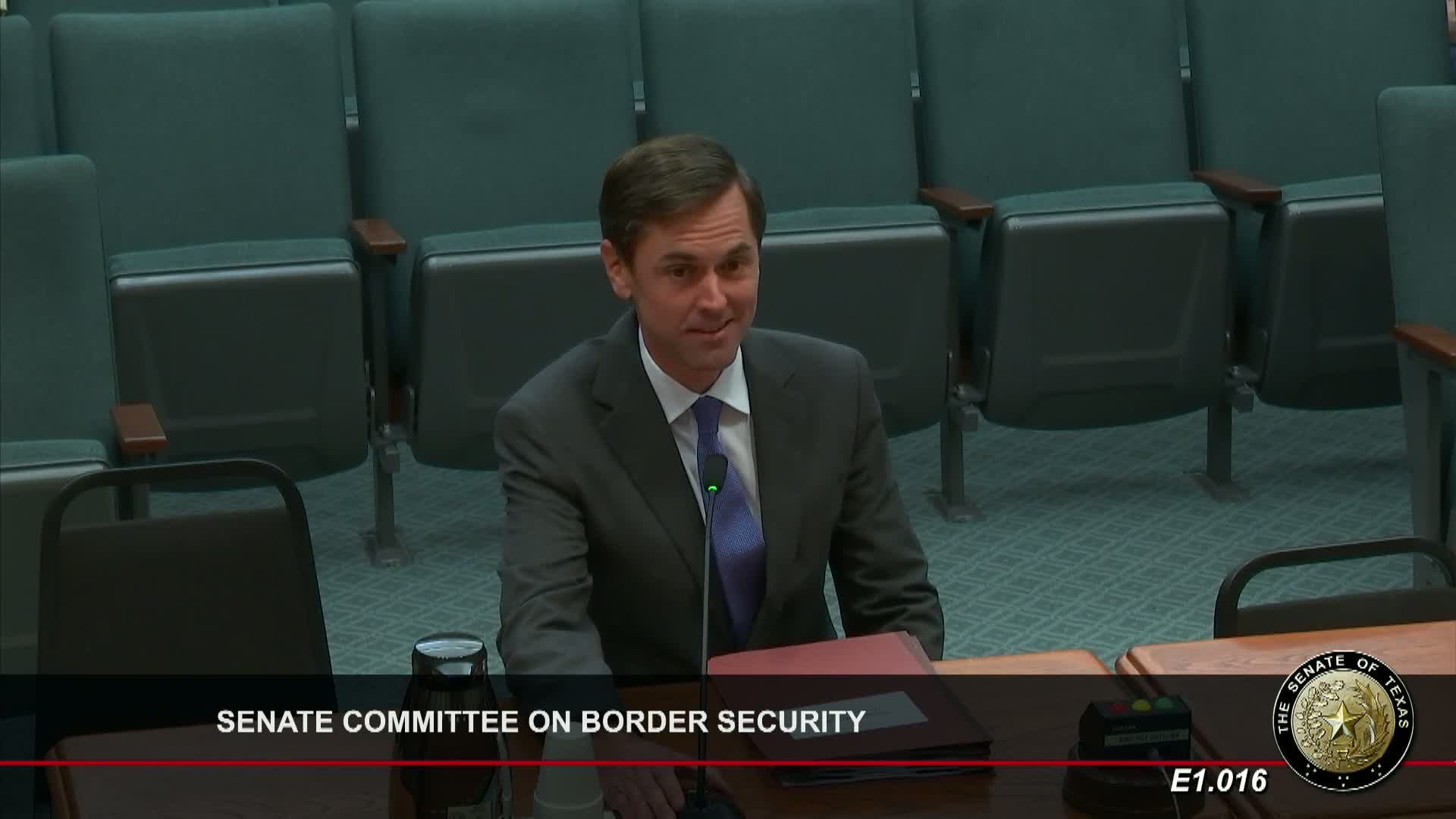Senate committee hears bill to require statewide study on costs and impacts of illegal immigration
Get AI-powered insights, summaries, and transcripts
Subscribe
Summary
Senate lawmakers and state agency officials on the Senate Committee on Border Security heard testimony on Senate Bill 825, a proposal to direct the Office of the Governor to produce a regular study of the economic, environmental and financial impacts of illegal immigration in Texas.
Senate lawmakers and state agency officials on the Senate Committee on Border Security heard testimony on Senate Bill 825, a proposal to direct the Office of the Governor to produce a regular study of the economic, environmental and financial impacts of illegal immigration in Texas.
The bill’s sponsor, Senator Bryan Middleton, told the committee the measure would “provide lawmakers with comprehensive data driven insights into the economic, environmental and financial impacts of illegal immigration on our state.” Middleton said the study would allow the state to quantify costs and possibly seek federal reimbursement: “We know of at least 6,000,000 who have crossed illegally into our state. And obviously right now we're asking for about $11,000,000,000 reimbursement for Operation Lone Star from the federal government,” he said.
Committee members and public witnesses urged several changes before the panel moves the bill. Several senators and witnesses recommended the Texas Comptroller’s office perform or manage the work because it previously produced a 2006 analysis and has in-house economists. Senator Hinojosa said the comptroller “has the staff, the professionals, the experience” and raised concerns about producing a biased report. Senator Eckhart and other members asked whether the study would include asylum seekers; Middleton responded that the intention is to exclude individuals “pending before... the federal government,” saying, “then no.”
Nonprofit witnesses supported a study in principle but warned about framing and impartiality. Sarah Cruz of the ACLU of Texas said the organization was “not opposed to the concept of conducting a study” but warned that, as written, the bill risked producing an “unbiased and comprehensive” report that focused only on costs and “would contribute to an anti-immigrant narrative.” Danny Woodward of the Texas Civil Rights Project, testifying neutral, recommended either the comptroller do the study or that the governor establish a multi-stakeholder commission to oversee it. Jaime Puente of Every Texan also supported updating the 2006 work and noted prior academic updates exist.
Agency witnesses described practical limits to producing precise statewide counts tied to immigration status. Officials from the Texas Education Agency and Health and Human Services said many state programs and local school districts do not collect immigration status and, in education specifically, federal case law constrains requests for citizenship or immigration data (Plyler v. Doe). TEA’s deputy general counsel noted the agency can use indirect indicators but cannot rely on a definitive statewide count. HHSC and OCA witnesses said data availability varies by program and by local reporting; the Texas Department of Criminal Justice said it can report reliably on incarcerated populations but does not currently receive consistent data from local jails.
Committee members also discussed other drafting issues: whether the study should be annual or biannual, whether it should include or exclude Operation Lone Star figures, how to handle jurisdictional questions when a statewide elected official (the comptroller) and the governor have overlapping roles, and whether underlying datasets should be publicly available given HIPAA and FERPA protections. Toby Baker, deputy chief of staff to the governor, took separation-of-powers and data-access questions for the record and agreed to follow up with committee staff.
No committee vote was taken during the hearing. Chair Senator Brian Birdwell recessed the committee “subject to the call of the chair” after hearing testimony and resource-witness questions; members indicated staff would seek legal and fiscal guidance before any further action.
The committee hearing combined public testimony, resource-witness briefings and questioning from senators but did not adopt or refer the bill during the session.
